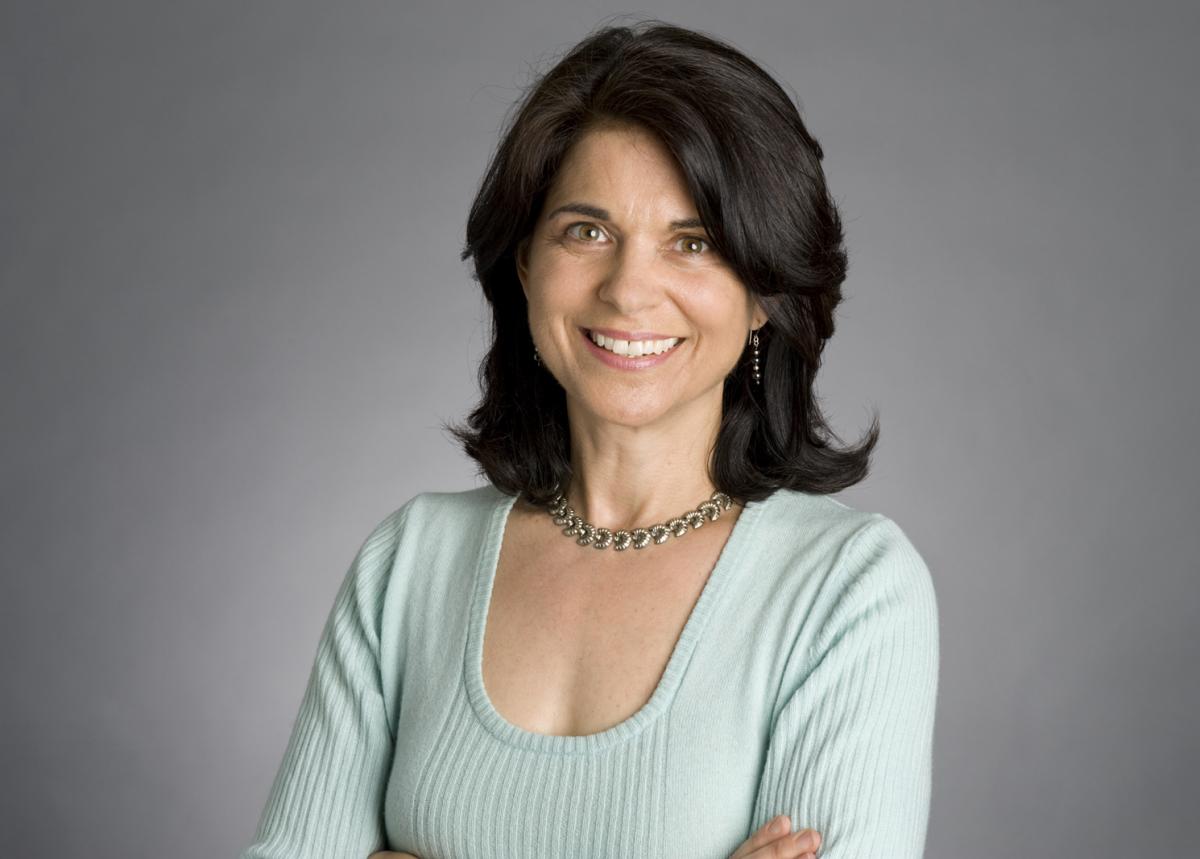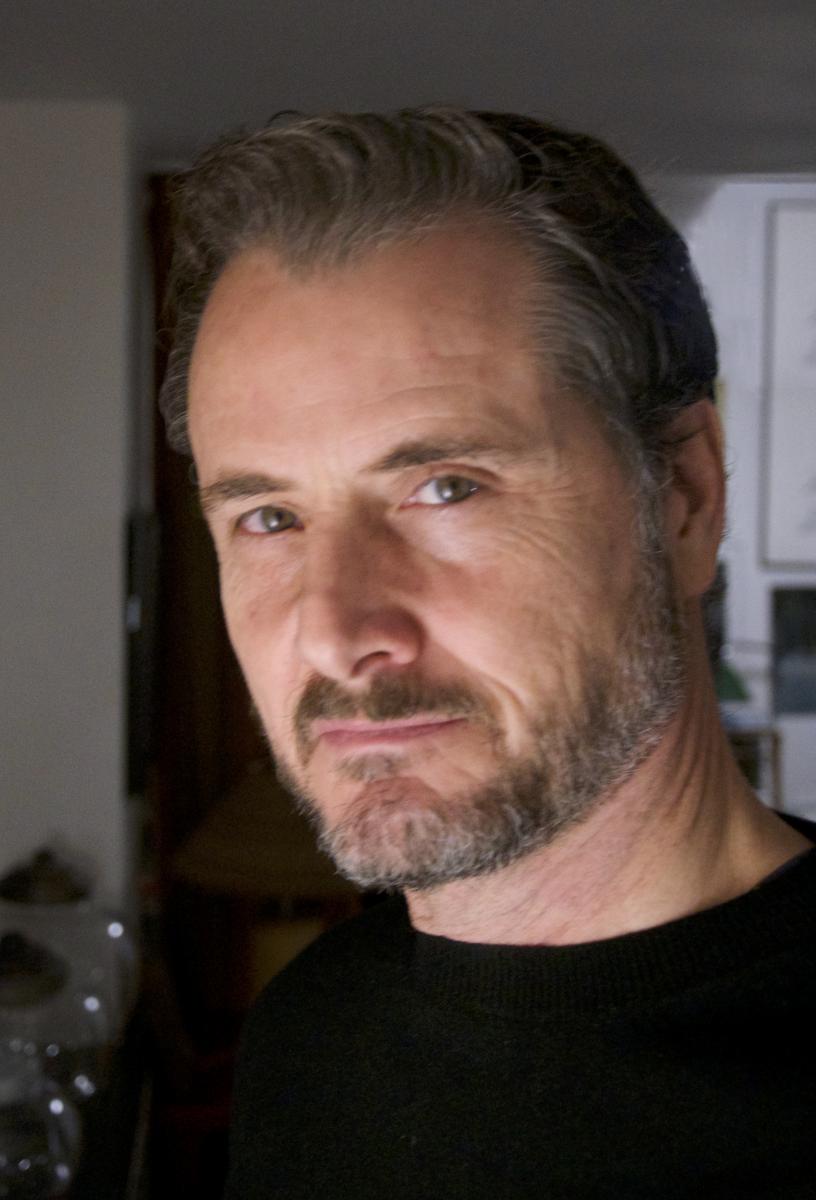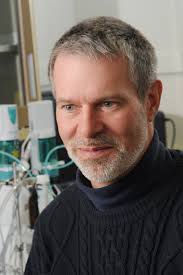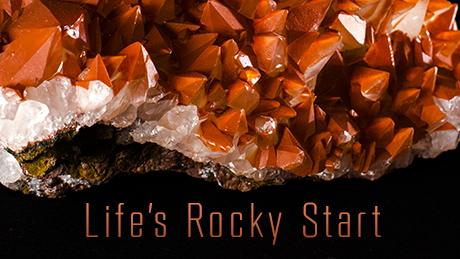The Carnegie Institution for Science and the producers of the PBS science series NOVA present
a special screening of "Life's Rocky Start" premiering January 13 on PBS.
Featuring a panel discussion and audience Q & A with:
Paula S. Apsell
Senior Executive Producer, NOVA
Julia Cort
Deputy Executive Producer, NOVA
Doug Hamilton
Writer, Producer, Director
Robert M. Hazen
Geophysical Laboratory, Carnegie Institution for Science
Life's Rocky Start
What is the secret link between rocks and minerals, and every living thing on earth?
Four and a half billion years ago, the young Earth was a hellish place—a seething chaos of meteorite impacts, volcanoes belching noxious gases, and lightning flashing through a thin, torrid atmosphere. Then, in a process that has puzzled scientists for decades, life emerged. How did it happen? NOVA joins mineralogist Robert Hazen on the rocky trail to resolve this enduring mystery. As Hazen journeys around the globe – from an ancient Moroccan market to the Australian Outback – he advances a startling and counterintuitive idea—that the rocks beneath our feet were not only essential to jump-starting life, but then, as microbes flourished and took over the biosphere, life helped give birth to hundreds of minerals we know and depend on today. This intriguing perspective of the co-evolution of Earth and life is reshaping the grand-narrative of our planet’s story. In this stunning adventure through billions of years of history, the story of life on Earth is revealed as fundamentally interwoven with the epic, unfolding story of Earth itself.
- The Carnegie Institution will open its doors 5:30PM.
- An overflow room, with a screen, will be available when our auditorium reaches maximum capacity. Seating in the auditorium is on a first-come, first-served basis.
- The Carnegie Institution for Science has partnered with Colonial Parking to offer parking reservations for its public lectures and conferences: http://www.ecolonial.com/locations/carnegie-science-institute/
 |
 As Director of the WGBH Science Unit and Senior Executive Producer of the PBS science series NOVA (now in its 42nd season), Paula S. Apsell has overseen the production of hundreds of acclaimed science documentaries, including such distinguished miniseries as The Fabric of the Cosmos with Brian Greene, Origins with Neil deGrasse Tyson and Making Stuff with David Pogue. In January 2005, Apsell introduced the critically acclaimed magazine spinoff NOVA scienceNOW. Today, NOVA is the most watched science series on American television, a top website on PBS.org and has won every major broadcasting award, including the Emmy, the Peabody and the duPont-Columbia Gold Baton. Apsell has been recognized with numerous individual awards and has served on several boards including that of the Smithsonian’s National Museum of Natural History. In 2012 she was journalist in residence at the Kavli Institute for Theoretical Physics at UC Santa Barbara and is a fellow of the American Association for the Advancement of Science.
As Director of the WGBH Science Unit and Senior Executive Producer of the PBS science series NOVA (now in its 42nd season), Paula S. Apsell has overseen the production of hundreds of acclaimed science documentaries, including such distinguished miniseries as The Fabric of the Cosmos with Brian Greene, Origins with Neil deGrasse Tyson and Making Stuff with David Pogue. In January 2005, Apsell introduced the critically acclaimed magazine spinoff NOVA scienceNOW. Today, NOVA is the most watched science series on American television, a top website on PBS.org and has won every major broadcasting award, including the Emmy, the Peabody and the duPont-Columbia Gold Baton. Apsell has been recognized with numerous individual awards and has served on several boards including that of the Smithsonian’s National Museum of Natural History. In 2012 she was journalist in residence at the Kavli Institute for Theoretical Physics at UC Santa Barbara and is a fellow of the American Association for the Advancement of Science.
Julia Cort, Deputy Executive Producer, NOVA  Julia Cort has more than 25 years of broadcast experience as a producer, writer and director. She joined the WGBH Science Unit in 1991, contributing to films such as “The Fabric of the Cosmos,” “Smartest Machine on Earth” and “Making North America.” She was a key player in developing NOVA’s award-winning sister series, NOVA scienceNOW, recently serving as executive producer. In the pursuit of a story, Cort has been blindfolded and led to secret diamond-making factories, waded in leech-infested swamps and attempted to recreate the technological feats of ancient Egyptian engineers. She is a recipient of the George Foster Peabody Award, the National Academies Keck Communication Award, the American Institute of Physics Science Writing Award, the National Association of Science Writers Science in Society Award and a News & Documentary Emmy.
Julia Cort has more than 25 years of broadcast experience as a producer, writer and director. She joined the WGBH Science Unit in 1991, contributing to films such as “The Fabric of the Cosmos,” “Smartest Machine on Earth” and “Making North America.” She was a key player in developing NOVA’s award-winning sister series, NOVA scienceNOW, recently serving as executive producer. In the pursuit of a story, Cort has been blindfolded and led to secret diamond-making factories, waded in leech-infested swamps and attempted to recreate the technological feats of ancient Egyptian engineers. She is a recipient of the George Foster Peabody Award, the National Academies Keck Communication Award, the American Institute of Physics Science Writing Award, the National Association of Science Writers Science in Society Award and a News & Documentary Emmy.
Doug Hamilton, Writer, Producer, Director Doug Hamilton has 25 years experience reporting, producing, directing and writing documentaries on a wide range of subjects including investigative reports, international affairs, arts and science.
Doug Hamilton has 25 years experience reporting, producing, directing and writing documentaries on a wide range of subjects including investigative reports, international affairs, arts and science.
He has worked primarily for PBS and CBS News 60 Minutes, but also directed the award winning feature and Showtime release, Broadway Idiot. Awards include three Emmys, a George Foster Peabody Award, AAAS Science Journalism Award, Writer’s Guild Award and an Investigative Journalism Award from the Society of Professional Journalists. Hamilton taught at the Graduate School of Journalism, University of California, Berkeley and is the photographer for the Atlantic Theater Company in New York City.
Robert M. Hazen, Geophysical Laboratory, Carnegie Institution for Science Robert M. Hazen, Senior Staff Scientist at the Carnegie Institution’s Geophysical Laboratory and Clarence Robinson Professor of Earth Science at George Mason University, received the B.S. and S.M. in geology at the Massachusetts Institute of Technology, and the Ph.D. at Harvard University in earth science. He is author of 400 scientific articles and 25 books, including Genesis: The Scientific Quest for Life’s Origin and The Story of Earth. He was recently named the 2016 Roebling Medalist. A former President of the Mineralogical Society of America, Hazen’s recent research focuses on the role of minerals in the origin of life, the co-evolution of the geo- and biospheres, and the development of complex systems. He is also Executive Director of the Deep Carbon Observatory, a 10-year project to study the chemical and biological roles of carbon in Earth’s interior. Hazen is active in presenting science to nonscientists through writing, radio, TV, public lectures, and video courses. In 2012 Hazen retired after a 40-year career as a professional symphonic trumpeter.
Robert M. Hazen, Senior Staff Scientist at the Carnegie Institution’s Geophysical Laboratory and Clarence Robinson Professor of Earth Science at George Mason University, received the B.S. and S.M. in geology at the Massachusetts Institute of Technology, and the Ph.D. at Harvard University in earth science. He is author of 400 scientific articles and 25 books, including Genesis: The Scientific Quest for Life’s Origin and The Story of Earth. He was recently named the 2016 Roebling Medalist. A former President of the Mineralogical Society of America, Hazen’s recent research focuses on the role of minerals in the origin of life, the co-evolution of the geo- and biospheres, and the development of complex systems. He is also Executive Director of the Deep Carbon Observatory, a 10-year project to study the chemical and biological roles of carbon in Earth’s interior. Hazen is active in presenting science to nonscientists through writing, radio, TV, public lectures, and video courses. In 2012 Hazen retired after a 40-year career as a professional symphonic trumpeter.
National corporate funding for NOVA is provided by Google and Cancer Treatment Centers of America. Major funding for NOVA is provided by the David H. Koch Fund for Science, the Corporation for Public Broadcasting, and public television viewers. NOVA is produced for PBS by WGBH Boston.
